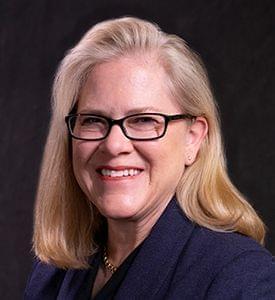Presidents and Preliminary Injunctions

Jennifer Pahre from the University of Illinois College of Law University of Illinois College of Law
In a case involving Donald Trump, the Second Circuit Court of Appeals ruled that Deutsche Bank must turn over certain financial documents to congressional committees. The financial documents, created before Donald Trump became President, pertain to his family, The Trump Organization, and related entities. Congress is interested in these documents, in part, because Deutsche Bank has been found to have engaged in serious financial misdeeds, including money laundering, and it has lent over $2 billion to the President and his affiliates.
In response, the President and others filed a federal lawsuit, seeking to nullify the subpoenas for the Deutsche Bank documents. They also filed a motion for a preliminary injunction to stop their release immediately. They were unsuccessful; the trial court found that Congress has the authority to request the documents, and therefore denied the motion for a preliminary injunction.
Preliminary injunctions are interesting. They are special court orders, usually obtained at the outset of litigation. Sometimes a litigant cannot wait for a court case to conclude, as something bad is going to happen very soon. So, they seek a ruling, up front, to stop something from happening, or to require something to continue to happen while the case goes on. For example, a plaintiff may seek a preliminary injunction to stop someone from trespassing, from taking lumber, from polluting a stream; or to stop someone from using a particular email address or website, or from posting pictures online; or to preserve vulnerable evidence; or to make sure a child remains in the country while custody litigation is pending. Or, in the case of Donald Trump, to stop disclosure of financial documents he would prefer not to have released.
To get a preliminary injunction, there must be a showing that an irreparable injury is likely to occur, and that this injury is something the law should prevent. The party seeking the injunction must usually show that they are likely to succeed on the merits in the pending case, or that there are serious questions on the merits, and that the balance of hardships tips in favor of the injunction.
In the Deutsche Bank case, the President and the other plaintiffs argued that they had an interest in keeping their records private from everyone, including Congress. The trial court and the Court of Appeals disagreed, both finding that Congress has broad powers to investigate, and that congressional committees have the authority to obtain this type of information. The House Financial Services Committee has general oversight responsibilities for banks and banking, international finance, and money and credit, and the House has formally stated that it wishes to close financial loopholes that support corruption, terrorism, and money laundering. Its investigation will explore matters related to these oversight responsibilities, including the financial details and scale of Russia’s operations to influence U.S. politics. The Committee also will look at links or coordination between the Russian government, related foreign actors, and individuals or business interests associated with Donald Trump. The trial court and the Court of Appeals both found that Congressional interests in pursuing these investigations overbalances any privacy interest that might be compromised by the disclosure of historic financial documents.
Supreme Court Justice Louis Brandeis once said, “In the frank expression of conflicting opinions lies the greatest promise of wisdom in governmental action.” The United States Supreme Court is now looking at the Deutsche Bank subpoenas. We are soon likely to see very sharply conflicting opinions very frankly expressed.

